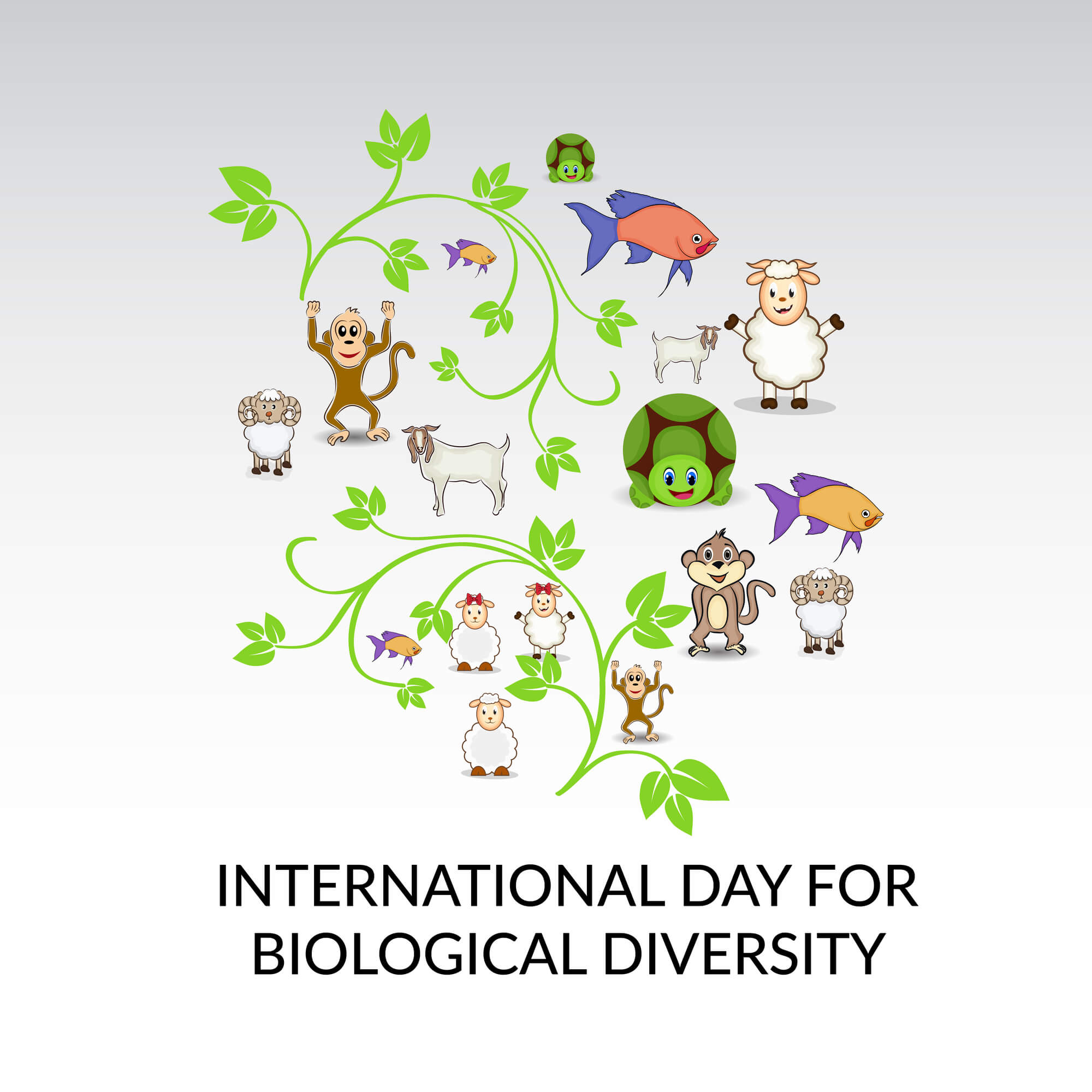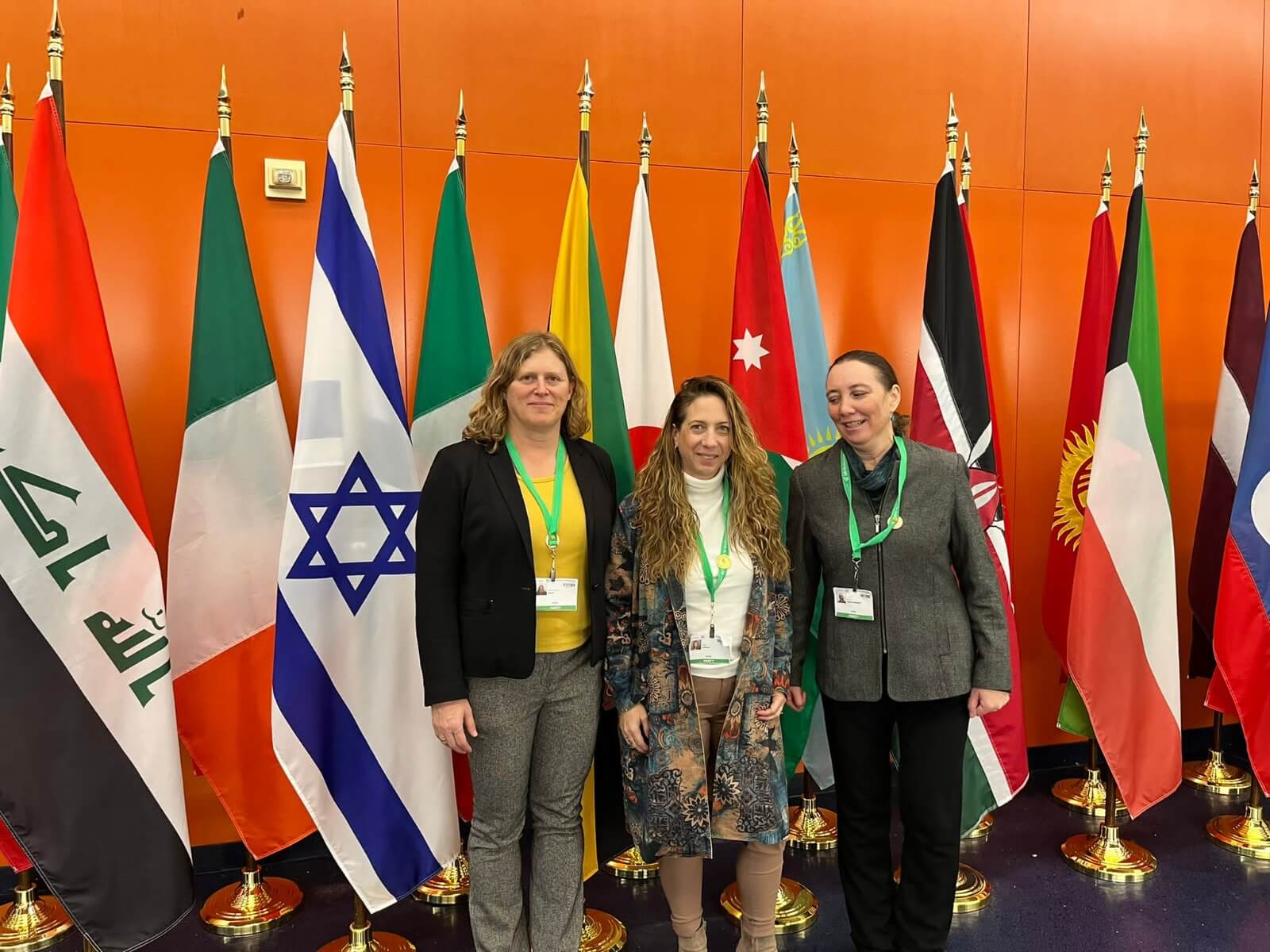At the international level, Israel joined the HAC and GOA coalitions about a year ago, which unite about 120 countries that commit to promoting the "30 x 30" goal - in favor of protecting 30% of the global terrestrial and marine ecosystems by 2030.

Towards the approval of a new global strategic plan for the Convention on Biological Diversity; The Ministry of Environmental Protection takes an active part in leading the high-level event of the Convention on Biological Diversity in Montreal COP15;
Last Thursday (15.12) the high-level part of the 15th Conference of the Convention on Biological Diversity (COP15.2) officially opened in Montreal, Canada. In this framework, the heads of delegations of the 196 countries that are signatories to the convention were invited to take an active part in the discussions as part of the negotiations on the new strategic plan of the Convention on Biological Diversity and to lead it in the final stages.
The Israeli delegation to Montreal is headed by Dr. Netta Lipman, Senior Vice President for Natural Resources and Climate Resilience at the Ministry of Environmental Protection, and together with her Israel is represented by Tamar Raviv, Head of the Biodiversity and Open Areas Division and Dr. Anna Trachtenbrot - Head of the Department of Biodiversity at the Ministry. During the two weeks leading up to the high-level part, representatives of the ministry participated in the professional discussions that prepared the ground for the arrival of the ministers and heads of delegations from the 196 countries that signed the treaty.
At the international level, Israel joined the HAC and GOA coalitions about a year ago, which unite about 120 countries that commit to promoting the "30 x 30" goal - in favor of protecting 30% of the global terrestrial and marine ecosystems by 2030.
A high-level event of the HAC coalition, with the participation of Dr. Netta Lipman, is intended to emphasize the message that there is a need to include such a goal in the new plan. Also, Israel joined a joint statement by Australia and Norway along with 35 other countries calling for increased ambition to protect the maritime space.
In the high-ranking part of the UN Plenary, Dr. Lipman gave a speech in which she reflected Israel's position, that the main product of the conference must be the approval of a new global plan for the preservation of biological diversity, which includes ambitious and measurable goals that will make it possible to prevent the further deterioration of biological diversity and the destruction the nature
In her speech, Dr. Lipman pointed out the connection between the three planetary crises: the biodiversity crisis, the climate crisis and epidemics, and said that the solution for all lies in maintaining healthy and functioning ecosystems and in the need to include ambitious goals in the global plan for the restoration of ecosystems and nature-based solutions as a means of dealing with climate change.
During the high-level meeting, Israel joined new statements and initiatives, including joining the European Union's initiative in the field of building tools for the management of global knowledge in the field of biological diversity - Global Knowledge Support Service for Biodiversityhttps://did.li/edWw5) and this for the purpose of implementing the global plan in the coming years.
Now the weight is placed on the political echelon, for the successful conclusion of the conference in Montreal. If all goes well, the Secretariat of the Convention on Biological Diversity is expected to publish a new global strategic plan for the Convention, which has been delayed for over two years due to the Corona epidemic.

34 new reserves in Israel in 2022 and the Glishit Palmahim marine reserve
As part of the speech, Dr. Lipman noted the achievements of the State of Israel in the past year in the field of biological diversity: in 2022, 34 new nature reserves and national parks were declared, a record in the number of declarations covering over 50 thousand dunams, among other things in sensitive and threatened habitats that suffer from underrepresentation in the protected areas . These are habitats such as the sands of the coastal plain, the salts of the Dead Sea, the Hamra soils and Mediterranean shrubs, which are threatened due to accelerated development processes.
Last September, the Minister of Environmental Protection, Tamar Zandberg, declared the unique "Palmahim surf" in the Mediterranean as a protected area due to its unique and rare natural values, thereby adding 440 square kilometers to the protected marine area and for the first time in Israel's economic waters.
Last November, the Ministry of Environmental Protection published a new master plan for the protection of the Eastern Ecological Corridor - the most threatened Israel. The ministry has already begun promoting moves to implement the recommendations in the plan, which will allow for an increase in ecological connectivity, which is also a goal in the global plan. For example, some of the bottlenecks characterized by this program will be addressed within the stream restoration projects approved this year by the ministry. In addition, the Ministry of Environmental Protection supports the promotion of urban nature with a budget of approximately NIS 15 million for the local authorities. The ministry also recently issued a call to the business sector to incorporate biodiversity considerations into business models.
Along with this, in the international negotiations of the Convention on Biological Diversity, significant disputes and tensions emerged between some of the countries on several main issues and they are: the level of ambition of the global goals and the setting of quantitative and measurable goals, the determination of the mechanism for sharing the benefits from digital genetic information (DSI) and the sources and mechanism of financing in favor of preserving biological diversity , mainly for the developing countries.
In light of the differences of opinion, the ministers began to take an active part in promoting the negotiations with the aim of reaching a deal on a package of agreements involving the level of funding for developing countries with the level of ambition of the new global plan. Countries such as Canada, Australia and Germany have already declared at this stage a significant increase in the scope of their aid to developing countries. At the same time, many developed countries (such as the United Kingdom and the European Union) have emphasized that funding for biodiversity must also reach the private sector, which is exposed to significant risks due to the loss of biodiversity and ecosystem services.
In the plenary discussion that took place on Friday (16.12/XNUMX), the business sector was called upon to reveal the effects of the business companies and their degree of dependence on biological diversity. This call by the governments was supported by central financial and business entities present at the plenary and by the Financial Biodiversity Pledge coalition who agreed that it is necessary to strengthen the cooperation between the governments and the private sector, strengthening in all relevant areas including regulation, project financing and risk management.
In the coming days, the various parties will work on reducing the gaps between the countries in order to reach an agreed plan that will be published by the end of the conference.
More of the topic in Hayadan:
- The real picture
- Tel Aviv University researchers: Middle Eastern empires collapsed because of a climate crisis
- Is there a chance to protect global biodiversity and bring about its restoration?
- The gatekeepers of biodiversity in the Galapagos Islands
- The decrease in the level of biological diversity below the safe level - damage to ecosystems and humans
